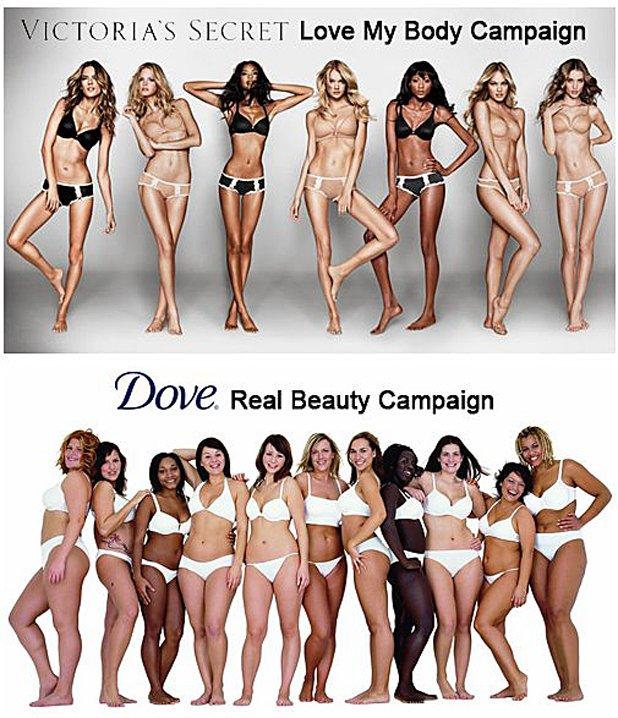Sophia Ghadoushi
Staff Writer
Every year, people all over the world tune in for the glamorous Victoria’s Secret (VS) Fashion Show. International models and superstar artists collaborate to produce the most talked about pop culture event of the year. On December 5th, 2016, social media buzzed with excitement and anticipation before and during the event. Weeks before watching the show, I saw several pictures, videos and advertisements reminding me to watch the “most beautiful women in the world” strut down the pink runway. However, something about that statement did not seem right to me.
During my English Marginalized Voices class taught by Dr. Genevieve Morgan, I realized that the VS Fashion Show is one of the many events that perpetuates certain beauty standards. After watching the show, it was obvious that all of the models were stick thin, tall, and had a face covered in makeup; not to mention their lack of diversity. It is clear that particular body types, skin colors, and overall looks are still expected in a time where beauty is supposedly evolving. For most women in the world, looking like lingerie supermodels is unrealistic. Why is being a VS supermodel considered the ideal or perfect woman by society?
Until our society lets go of this singular perception of beauty, we will not be able to move forward to a diverse culture of charm, where all race, shapes, sizes, faces, and imperfections are welcomed. From a young age, I was taught that beauty is limited to certain characteristics. As I grew older, I began to internalize these ideas, and became prone to criticizing the way I looked. The VS Fashion show just reinforces the notion that girls have been fed time and time again: if they don’t have the body, color, or face of a model, they simply are not beautiful enough. Instead of favoring one body type, society should encourage accepting people exactly the way they are.
Supermodel, Ashley Graham, works extremely hard to break the barrier of body image standards in all the work she does. Her boldness and bravery through different campaigns and words of encouragement inspire women to to be body positive. In an article with Cosmopolitan, Graham states, “I don’t like the term ‘plus-size.’ It’s just not helping women. I’m ready to get rid of it. If you have to label me, I like to be called ‘curvy-sexylicious.’” In this interview, Graham sends a clear message: you don’t have to look a certain way to be beautiful. Her motivating words and shattering of labels in the media give other women a platform and safe space to love who they are. Ashley is one of the many women who are trying to shatter preconceptions of beauty and standing up for millions who battle body issues.
You go Ashley!



